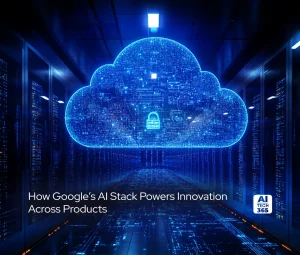Here is AITech365’s Weekly Roundup of the top news from global markets. In this fast-paced world, breaking down information helps readers grasp the nuances that follow the news.
In Automation in AI news this week…
Motive Unveils AI Answers: Conversational AI for Operations
Motive, the AI-powered Integrated Operations Platform, unveiled AI Answers, the first conversational AI for physical operations. Like ChatGPT, it understands natural language questions and instantly surfaces answers from the full range of operational data Motive connects across the organization. From fleet safety to fuel efficiency to maintenance spend, AI Answers helps safety, finance, and operations teams quickly see what’s happening and take action right away. The result is faster data-backed decisions that improve safety and productivity.
In Healthcare news this week…
Wolters Kluwer launches Ovid Synthesis Expert AI for faster healthcare improvement
Wolters Kluwer Health announced the launch of new AI features in Ovid Synthesis to further support nursing and quality improvement leaders, practitioners and researchers in elevating the quality, speed, and impact of their improvement work. Created with feedback from customers and industry experts and now available as an optional add-on to the Ovid Synthesis platform, Ovid Synthesis Expert AI helps organizations accelerate evidence-based practice (EBP), quality improvement (QI), and research projects by streamlining manual and rigorous project tasks.
In Business Technology news this week…
OpenAI Unveils “gpt-oss-safeguard”: Open-Weight Safety Reasoning Models
In a major shift in favor of both the open-source AI community and security-sensitive enterprise, OpenAI announced the research preview of gpt-oss-safeguard, a pair of open-weight reasoning models designed specifically for safety classification tasks.
In Cloud news this week…
IBM Acquires Txture to Help Clients Migrate and Modernize Hybrid Cloud Estates
At IBM Consulting, the combination of human expertise with digital assets assistants, agents and applications enables clients to modernize, transform and realise value more rapidly. IBM announces the acquisition of Txture GmbH, whose software assets are designed to help businesses migrate, modernize and optimize their hybrid cloud estates.
In IT & DevOps news this week…
GitHub Announces “Agent HQ”, A Unified Platform for AI-Driven Coding Agents
GitHub unveiled its latest advancement in developer productivity: Agent HQ, a comprehensive ecosystem enabling development teams to integrate and manage multiple AI coding agents from across the industry. This move advances GitHub’s vision of delivering a flexible, open environment where agents become a native part of the developer workflow.
In Manufacturing news this week…
NVIDIA and SK Group Launch “AI Factory” to Accelerate Manufacturing Transformation
NVIDIA announced a major strategic partnership with SK Group to build an “AI factory” in South Korea, aimed at driving the next generation of manufacturing and digital transformation. The venture will deploy more than 50,000 NVIDIA GPUs in its first phase (expected to complete by late 2027) and will serve SK Group’s subsidiaries including SK hynix and SK Telecom as well as external customers via GPU-as-a-service.
Insight of the Week
Cloud AI vs. Edge AI: Where Should Enterprises Invest?
 Every enterprise chasing AI transformation eventually hits the same question: where should the intelligence live? On the cloud, where scale and computing power seem infinite, or at the edge, where real-time decisions can actually happen? It’s not a simple technology debate. It’s a strategic one that defines how efficiently data turns into value.
Every enterprise chasing AI transformation eventually hits the same question: where should the intelligence live? On the cloud, where scale and computing power seem infinite, or at the edge, where real-time decisions can actually happen? It’s not a simple technology debate. It’s a strategic one that defines how efficiently data turns into value.
How Google’s AI Stack Powers Innovation Across Products
 Most enterprises began their AI journey by experimenting in silos, building small ML projects that never scaled beyond prototypes. The problem isn’t ambition, it’s architecture. Traditional IT systems were never built to handle the data intensity, compute demands, and continuous learning cycles of modern generative AI. That’s where Google’s AI Stack steps in. It’s a complete ecosystem, from hardware to MLOps, engineered for speed, security, and real-world scalability.
Most enterprises began their AI journey by experimenting in silos, building small ML projects that never scaled beyond prototypes. The problem isn’t ambition, it’s architecture. Traditional IT systems were never built to handle the data intensity, compute demands, and continuous learning cycles of modern generative AI. That’s where Google’s AI Stack steps in. It’s a complete ecosystem, from hardware to MLOps, engineered for speed, security, and real-world scalability.


